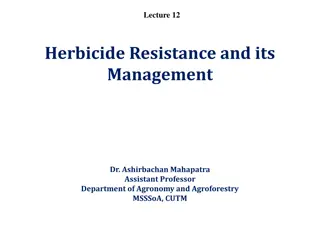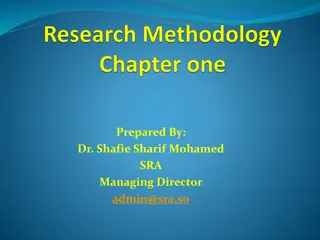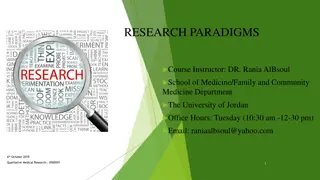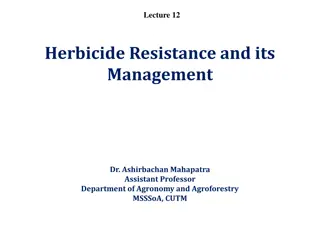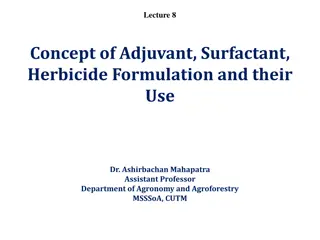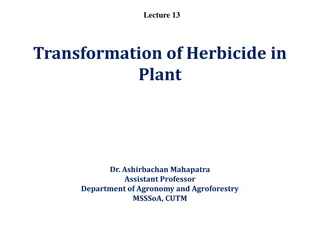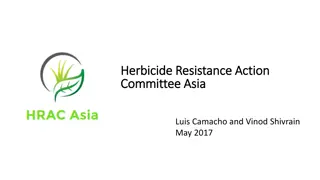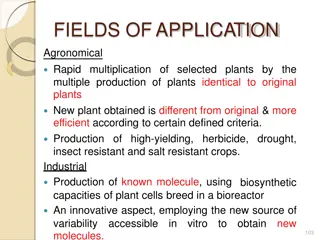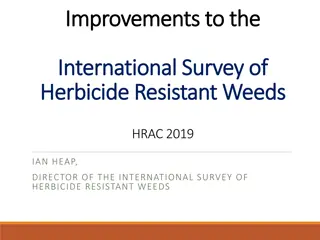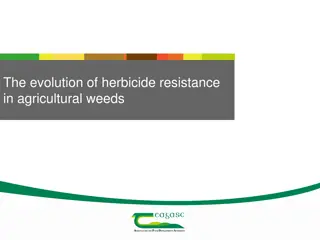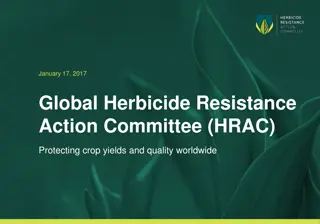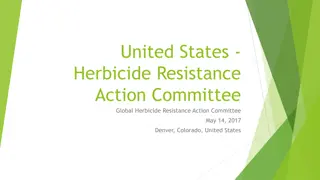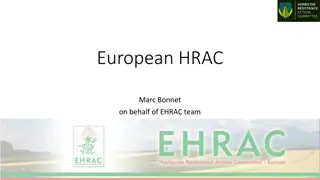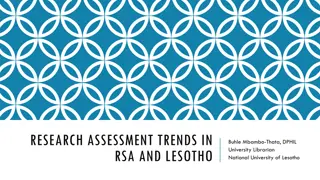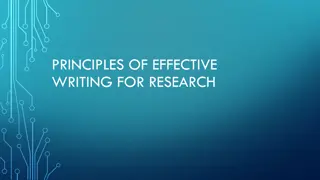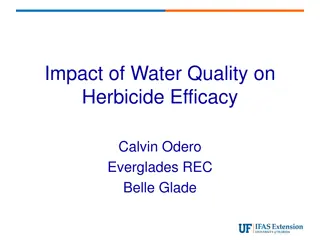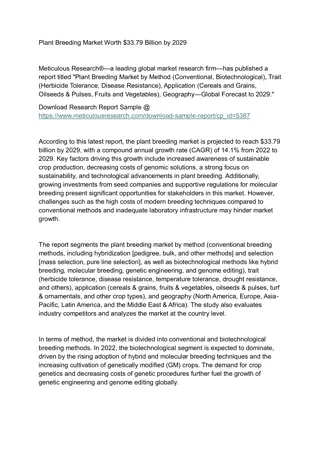Addressing Contemporary Challenges in Research Security Program Development
The Workshop to Inform Development of the Research on Research Security Program (RRSP) focuses on safeguarding the research enterprise amidst evolving global threats. Led by Dr. Rebecca Keiser and Dr. Shawna Cox, the program aims to balance security measures while maintaining an open and collaborati
3 views • 16 slides
Safeguarding Canada's Research: Policy on Sensitive Technology Research and Affiliations of Concern (STRAC)
Canada's new Policy on Sensitive Technology Research and Affiliations of Concern (STRAC) aims to protect the country's research ecosystem from foreign entities posing security risks. The policy restricts funding for projects involving sensitive technology research if affiliated with military or stat
1 views • 10 slides
Understanding Adjuvants and Herbicide Formulation in Agriculture
Adjuvants play a crucial role in enhancing the effectiveness of herbicides by aiding in wetting, spreading, and penetration of herbicides into target plants. Different types of adjuvants such as surfactants, stabilizing agents, coupling agents, humectants, and deposit builders serve specific functio
2 views • 10 slides
Understanding Herbicide Mixtures, Compatibility, and Applications in Agriculture
Herbicide mixtures play a crucial role in weed control by combining different herbicides for enhanced efficacy. Various types of herbicide mixtures, including factory pre-mix and tank mix, offer advantages such as broad-spectrum weed control and delayed resistance development. Compatibility of herbi
3 views • 23 slides
Understanding the Process and Types of Research Design
The process of research design involves interactive stages that occur simultaneously, leading to the designing of a research study. This includes steps in research design, classification of research design types, such as exploratory, descriptive, and experimental/causal research design. Each type se
12 views • 8 slides
Understanding Herbicide Resistance and Management
Herbicide resistance is the inheritable ability of certain weed populations to survive herbicide treatments that would typically control them. This resistance is a natural process, influenced by factors like genetic diversity, herbicide selection pressure, and resistance mechanisms. Effective manage
12 views • 14 slides
Overview of Herbicides Classification and Groups
Herbicides are classified based on their chemical nature into inorganic and organic types. Inorganic herbicides, such as arsenic acid and copper sulfate, do not contain carbon atoms, while organic herbicides, like glyphosate and 2,4-D, contain carbon atoms. The classification includes various groups
4 views • 15 slides
UCC Research Support and Strategies Overview
UCC's Research Support, Policy & Strategy function, led by David O'Connell, PhD, provides comprehensive support for research activities at the university. The office manages research funding, monitors performance, and facilitates engagement with external stakeholders. UCC's involvement in Horizon Eu
3 views • 17 slides
Expansion of Health Care Eligibility for Toxic-Exposed Veterans
This Title expands the eligibility criteria for Toxic-Exposed Veterans in 38 U.S.C. 1710 by refining the definition of Vietnam-era herbicide-exposed veterans to include those who performed covered service in specified locations. It introduces three new categories of eligible veterans based on toxic
1 views • 19 slides
Understanding Corn Growth Stages: Leaf Staging Methods and Considerations
Various leaf staging methods, including the Leaf Collar Method and Droopy Leaf Method, are used to identify corn plant growth stages. The Leaf Collar Method involves counting leaves with visible collars, while the Droopy Leaf Method considers leaves at least 40-50% exposed from the whorl. Factors li
0 views • 9 slides
Effective Proposal Writing for Health Research
Learn about the fundamentals of research proposals for health-related studies, including defining research, understanding the purposes of health research, and exploring motivation for undertaking research. Discover the difference between basic and applied research, examine types of research, and del
1 views • 70 slides
Overview of Research Problem Identification and Formulation
Understanding the importance of defining a research problem, this content delves into the selection and formulation of research problems, the definition of a research problem, reasons for defining it, methods for identifying research problems, sources of research problems, and considerations in sele
1 views • 11 slides
Understanding the Essence of Research: A Comprehensive Overview
Research is a systematic pursuit of new knowledge, aiming to unveil hidden truths through data collection and analysis. This course outline delves into the fundamentals of research, covering topics such as types of research studies, importance of research, and distinctions between pure and applied r
3 views • 32 slides
Epic Tools for Clinical Research by Shara Power, RN, BSN, OCN
Explore Epic tools for clinical research developed by Shara Power, a skilled application developer specializing in EPIC Beacon Oncology at UIHC Healthcare Information Systems. Learn about managing research study records, investigational study medication orders, and the process for creating and using
0 views • 26 slides
Understanding Research Paradigms in Qualitative Medical Research
Delve into the world of research paradigms in qualitative medical research with a focus on the key differences between objective and subjective research, the meaning of research paradigms, components of research paradigms, types of research paradigms, and how paradigms guide the selection of researc
0 views • 42 slides
Guidelines for Selecting Research Project Topics in Environmental Health
Research is crucial for addressing environmental health issues. Choosing a good research topic is the first step towards effective research. This paper discusses the meaning, characteristics, types of research, and the research process to help in selecting appropriate research topics. Understanding
0 views • 15 slides
Understanding Herbicide Resistance in Weeds: Insights and Management Strategies
Herbicide resistance is a naturally occurring phenomenon in weed populations, impacting the effectiveness of herbicide treatments. This resistance can be passed down through generations and is influenced by various factors such as cultural practices, herbicide mechanisms, and the biology of weed spe
0 views • 14 slides
Comprehensive Research Training Programme in Social Sciences
Delve into the Research Training Programme offered by the Graduate School of Social Sciences, led by Professor Mark Tranmer. Explore the importance of research methods training, course offerings under the Research Training Programme (RTP), the Certificate in Social Science Research Methods (CSSRM),
6 views • 11 slides
Understanding Adjuvants and Herbicide Formulation
Adjuvants are additives that enhance herbicide effectiveness, crucial for optimal weed control. Types include surfactants, stabilizing agents, coupling agents, humectants, deposit builders, and more. Surfactants aid in wetting and spreading herbicides, stabilizing agents keep suspensions intact, cou
0 views • 10 slides
VELCO Vegetation Management Plan Overview 2021
Detailed analysis of the proposed vegetation management plan by VELCO for 2021, including comparisons between planned and actual units, herbicide usage by chemical and line, Rodeo usage by year, scheduled maintenance areas, and ultra-low volume foliar treatments. The data visualizations provide insi
0 views • 12 slides
Impacts of Brassica Removal on Plant and Fungal Communities
Study on methods of Brassica removal in Coastal Sage Scrub ecosystems, evaluating effects on plant and fungal communities. Results show differences in vegetation cover, species composition, and fungal biomass with various removal techniques like herbicide, mowing, and hand-weeding.
0 views • 19 slides
Herbicide Absorption and Translocation Mechanisms in Plants
Herbicides need to be effectively absorbed and translocated within plants to interfere with physiological and biochemical processes. Soil-applied herbicides are absorbed by roots, shoots, and seeds through different mechanisms, while foliage-applied herbicides enter through the cuticle, stomata, and
0 views • 7 slides
Challenges and Trends in Herbicide Resistance Management in Asia-Pacific Region
The Asia-Pacific region faces challenges with herbicide resistance, particularly in countries like China and Australia. Issues include incorrect herbicide application, resistance cases reported, and concerns about glyphosate resistance. Additionally, the introduction of herbicide-tolerant traits in
0 views • 11 slides
Plant Tissue Culture Applications in Agriculture and Biotechnology
Plant tissue culture technology is a versatile tool used in agronomy and biotechnology for rapid multiplication of selected plants, production of high-yielding, herbicide, drought, insect, and salt-resistant crops, as well as the generation of phytopharmaceuticals, secondary metabolites, and novel c
0 views • 17 slides
Icelandic Research Fund 2015: Enhancing Scientific Research and Education
The Icelandic Research Fund (IRF) aims to enhance scientific research and education in Iceland by awarding funding to research projects led by individuals, teams, universities, research institutes, and companies. Principal investigators must have completed graduate studies and experience in running
0 views • 22 slides
Enhancements to International Survey of Herbicide Resistant Weeds and Website Overhaul Plan
In 2019, Ian Heap, Director of the International Survey of Herbicide Resistant Weeds (HRAC), is leading an initiative to enhance the survey and overhaul the website to target completion by year-end. The website will undergo a three-tiered redesign focusing on presentation layer, application layer, a
0 views • 11 slides
Understanding Agent Orange Exposure and Associated Diseases
Agent Orange was a tactical herbicide used by the U.S. military during the Vietnam War, leading to long-term health issues for exposed veterans. The VA provides free health exams and benefits for eligible veterans and their families affected by diseases like diabetes, cancer, and neurological disord
0 views • 15 slides
Challenges in Self-Help Research in Germany
Exploring the landscape of self-help research in Germany reveals various challenges and obstacles faced by researchers in studying self-help initiatives. The research delves into different aspects such as research scope, involvement of various groups, and the entities conducting research in this dom
0 views • 14 slides
Memorial University Research Strategies Overview
Memorial University's research strategies focus on attracting, retaining, and supporting researchers, fostering an environment of research excellence, engaging with community partners, and supporting fundamental and applied research. The university's strategic priorities include synergy in applicati
0 views • 11 slides
Understanding Herbicide Resistance in Agricultural Weeds
This comprehensive content covers the evolution of herbicide resistance in agricultural weeds, including the origins of herbicides, cases of resistance, target site resistance, and non-target site resistance. It explains the definition of weeds, types of herbicides, selective and non-selective herbi
0 views • 32 slides
Global Herbicide Resistance Action Committee (HRAC): Protecting Crop Yields Worldwide
The Global Herbicide Resistance Action Committee (HRAC) is a global leader in managing herbicide resistance to safeguard crop yields and quality. They focus on collecting, assessing, and providing vital information to combat herbicide resistance. Their mission is to support industry experts working
0 views • 12 slides
United States Herbicide Resistance Action Committee Summary
Herbicide resistance is a critical issue being tackled by the United States Herbicide Resistance Action Committee (US HRAC). Formed in 2015, US HRAC operates independently from Global HRAC, focusing on specific areas while aligning on key herbicide resistance matters. The committee engages in variou
0 views • 6 slides
Environmental Review and Conservation Efforts for Aquatic Weed Control at Tahoe Keys Lagoons
In an effort to address the aquatic weed issue at Tahoe Keys Lagoons, a full environmental review is underway with proposed herbicide discharge into the waters. The project aims to find an environmentally superior alternative for controlling weeds while ensuring minimal impact on the environment and
0 views • 8 slides
European HRAC - Herbicide Resistance Action Committee
European HRAC, led by Marc Bonnet, is a group of industry experts working on herbicide resistance issues. The team includes members from various companies and focuses on leveraging their collective knowledge to address resistance challenges. Their SWOT analysis highlights strengths, weaknesses, oppo
0 views • 7 slides
The Impact of GMOs on Agriculture and Society
Genetically Modified Organisms (GMOs) are created through genetic engineering techniques like biolistics and Agrobacterium tumefaciens. These modifications are made to confer herbicide resistance, pathogen resistance, control fruit ripening/rotting, and increase production. The documentary explores
2 views • 45 slides
Research Assessment Trends in RSA and Lesotho: Issues, Challenges, and Forward Strategies
Research assessment in RSA and Lesotho involves evaluating research quality, measuring inputs, outputs, and impacts using both qualitative and quantitative methodologies. The prevailing practices include assessing research productivity for progression and utilizing various assessment mechanisms to e
0 views • 7 slides
Exploring Research Design and Funding Priorities in Northern Ireland
Dive into the world of research at the upcoming Application and Research Design Workshop scheduled for Friday, 28th May 2021. Discover the strategic priorities driving impactful research initiatives, learn about current research projects, funding processes, and collaborations. Explore the rich histo
0 views • 37 slides
Writing Research Papers Effectively: Guidelines and Steps
Effective writing for research involves developing a good research idea, writing a literature review, and understanding the key elements of writing research articles. This process includes coming up with a strong research question, gathering relevant information, creating an outline, writing the dra
0 views • 26 slides
Understanding the Impact of Water Quality on Herbicide Efficacy
Water quality plays a crucial role in determining the effectiveness of herbicides. Factors such as water pH, hardness, turbidity, and dissolved materials can influence herbicide efficacy. The interaction between water chemistry and herbicide chemistry is essential for successful applications. Differ
0 views • 13 slides
Plant Breeding Market
\nPlant Breeding Market by Method (Conventional, Biotechnological), Trait (Herbicide Tolerance, Disease Resistance), Application (Cereals and Grains, Oilseed & Pulses, Fruits and Vegetables), Geography - Global Forecast to 2029
1 views • 3 slides





